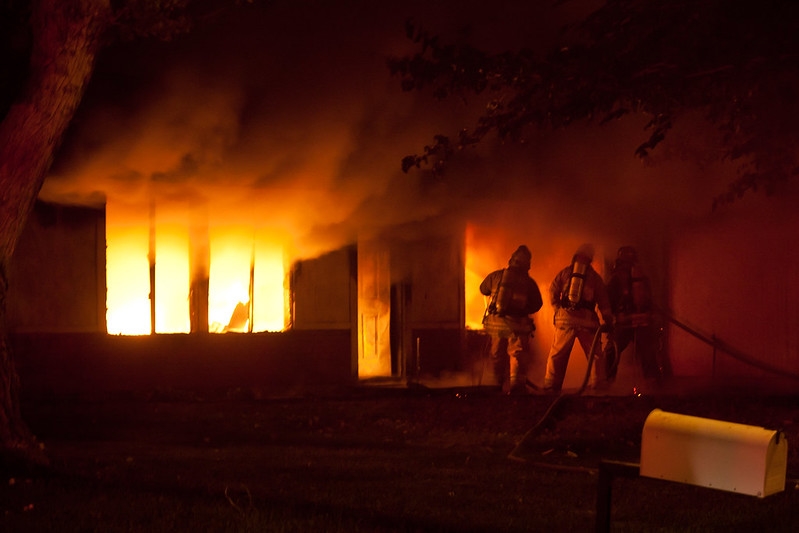There is a lot to mention regarding the prevention of fires.

In the home, it mainly concerns fire-related practices and protective measures. A home without adequate preparations to overcome a sudden outbreak can be in smoky ruins within minutes.
It doesn’t take much to save your dwelling from blazing flames. There are certain precautions and know-how to get that done. One may think these should be common knowledge.
Unfortunately, many people still don’t know what to do in this typically horrific scenario. Here, we’ll be discussing some practical safety tips to protect your home from fire mishaps.
Ideally, it’s best to have fire extinguishers in every area of your house. These include your basement, kitchen, garage, bedroom, etc. The accessibility of these tools will determine how fast you’ll react to curtail an inferno.
When you purchase a fire extinguisher, it’s essential to have a hang of its use beforehand. Manufacturers differ, and so also are their products. There are usually manuals to give directives on how to operate them. If you seem to have no luck with that, you can contact a nearby fire department for training.
Read Also:
Smoke alarms are automatic fire detection systems that signal the presence of fire somewhere within an apartment. It has been an essential requirement for most homes in some states lately.
It’s unique because it ensures people escape a fire threat supposing it’s unquenched. Overhead sprinkler systems complement alarms function by instant activation after they’re triggered.
The NFPA recommends smoke detector installation on all levels of a residential building. After about a decade of operating, they’re due for replacements.
Electrical gadgets and outlets are the sources of most fire breakouts. To remedy this, homeowners should check these appliances for faultiness and outdatedness.
If you notice signs of melting wires, smoke, unusual sounds from your outlets, or loose connections, you should contact a professional to help change them.
Cooking is the foremost cause of home fires, according to most reports. Since it’s impossible not to prepare food in your house, you can only stay safe while doing it. To do this, you should:
Fireplaces, wood stoves, and candlelights are common open fires used in some houses. These exposed sources can easily be in direct contact with surrounding objects, making them potentially dangerous.
For candles, burn them on non-flammable surfaces. Inspect your wood stoves, hearth, and chimneys regularly to check for damages. Also, you can camp your fireplace using a screen to prevent stray logs from escaping.
Home infernos are better prevented than resorting to last-minute countermeasures. Your level of preparedness ensures your family and properties are safe in case fire surges in your house. With the above tips, you have a good chance of keeping your home fireproof.